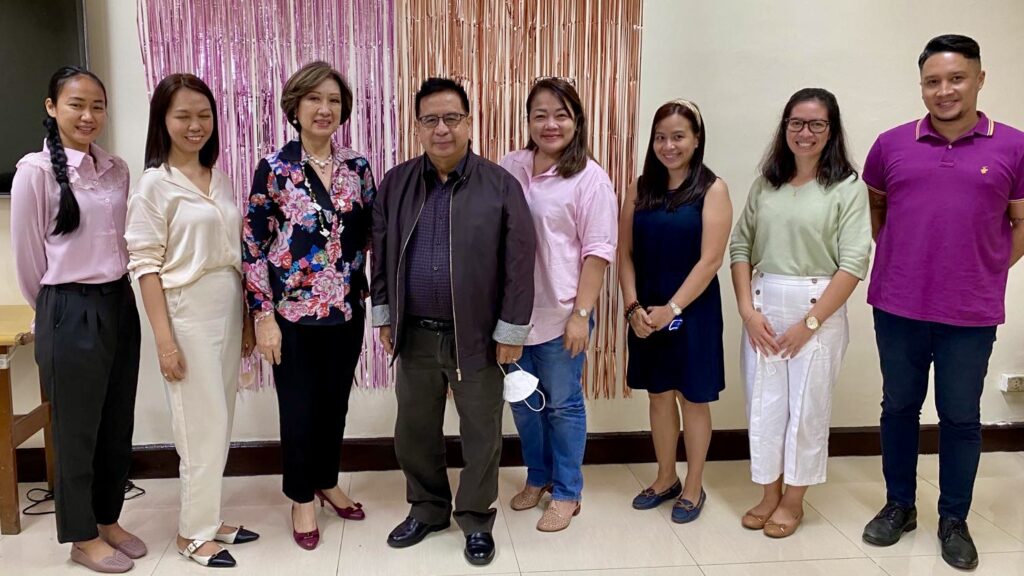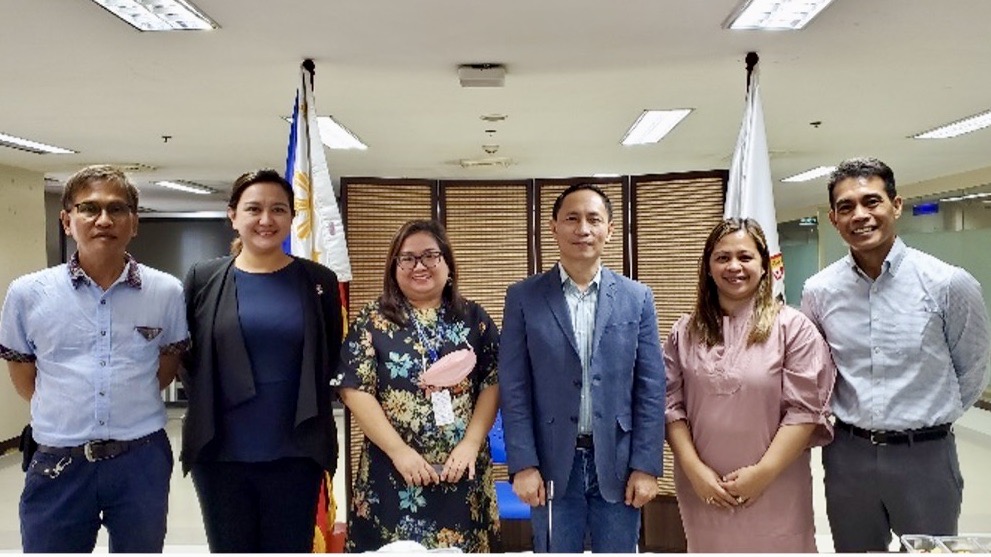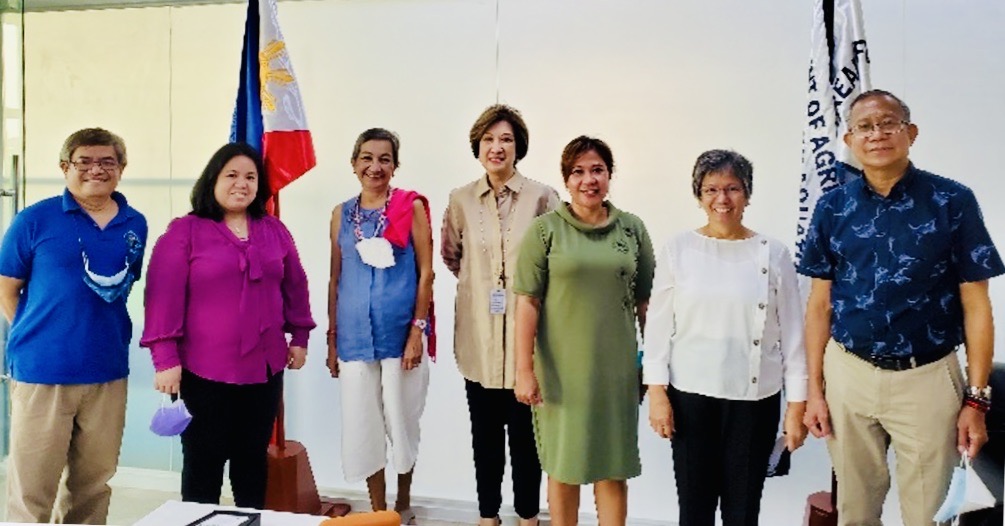PRIMEX completed three projects in agriculture (specifically rice), fisheries, and disaster and risk reduction (DRR) in the first half of 2022, namely: (i) Philippine Rice Industry Roadmap (PRIR), 2021-2035; (ii) Disaster Risk Reduction Enhancement at Local Level (DREALL) Program; and (iii) Fisheries and Coastal Resiliency (FishCore) Project.
PRIR and DRREAL were technical assistance (TA) grants from the Asian Development Bank (ADB) and the French Development Agency (Agence Francaise de Developpement [AFD]), respectively, while FishCore was funded by the Bureau of Fisheries and Aquatic Resources (BFAR). Both DRREAL and FishCore prepared the design of projects for loan financing by the European Union (EU) and the World Bank (WB), respectively. On the other hand, the PRIR TA involved the development of a comprehensive, science-based roadmap for the Philippine rice industry over the next 15 years.
Philippine Rice Industry Roadmap (PRIR), 2021-2035

The passage of Republic Act (RA) 11203, The Rice Tariffication Law (RTL), in February 2019 effected the shift of the Philippines’ rice policy from one governed by quantitative restrictions (QRs) or import bans to a liberalized trading regime, where private traders are allowed to import the rice requirements of the country subject to health and sanitary standards and the payment of a 35% tariff duty.
Among the provisions of the RTL is the formulation of a Philippine Rice Industry Roadmap, which will provide the blueprint for a modern and competitive Philippine rice sector, while promoting crop diversification, to enable the farmers to earn more income. The PRIR is a critical document for developing the rice industry because it provides guidance on how the Rice Competitiveness Enhancement Fund (RCEF), which was established as a requirement of the RTL, and other rice-related programs of the Department of Agriculture (DA) should be delivered to ensure the development of the rice industry. The PRIR that was formulated by the PRIMEX Team provides such a blueprint, building upon an initial roadmap developed by the DA-Philippine Rice Research Institute (PhilRice).
PRIR development took nine months (July 2021–April 2022) and involved extensive data gathering and analysis, desk research, and stakeholder consultations. The PRIMEX team of seven international and national consultants was led by Dr. Mark Rosegrant, an internationally renowned agriculture economist and former Director of the Environment and Production Technology Division of the International Food Policy Research Institute (IFPRI) in Washington, DC. The PRIR Team worked under the overall direction of Dr. Takeshi Ueda, Principal Natural Resources and Agriculture Economist, ADB Environment, Natural Resources, and Agriculture Division, Southeast Asia Department.
“Let me add my heartfelt thanks to all of the consultants who produced high quality work under pressure, and to the PRIMEX team, especially Vi, for expertly shepherding us through the process and to Rutchel for her excellent work throughout. This was a challenging project, but we have produced an excellent final report and roadmap which can have positive impacts on the Philippine rice industry. My only regret is being unable to travel to the Philippines due to COVID restrictions. It would have been great to work with you and collaborate with DA and ADB in person.”
– Dr. Mark Rosegrant, PRIR Team Leader
Apart from Dr. Rosegrant, the PRIMEX PRIR consultants were Dr. Gamini Keerthisinghe, international Agronomist; Dr. Roberto Acosta, national Agribusiness/Agricultural Marketing Specialist; Dr. Manuel Palada, national Agronomist; Mr. Cesar Umali, national M&E Specialist; Mr. Gil Cabezon, national Policy and Institutions Specialist; Ms. Antonia F. Carlos, national Gender and Social Development Specialist; Dr. Serafin Talisayon, national Knowledge Management and Communication Specialist; and Mr. Jay Payuyo, national IT Specialist. Ms. Elvira C. Ablaza, PRIMEX Director & Senior Adviser, served as Project Director. She was supported by Ms. Rutchel Macasa, Project Manager, and Engr. Karen Claire D. Eda, Senior Technical Services Officer.
Disaster Risk Reduction Enhancement at Local Level (DREALL) Program

With the heavily decentralized governance framework in the Philippines, local government units (LGUs) serve as the frontline of defense in times of disasters and emergencies in their localities. They are expected to deal with the hazards that affect their communities through plans, programs, and budgets that are informed by multi-hazard risk assessments. To be able to carry out these functions, national laws on disaster risk reduction and management (DRRM) and climate change adaptation (CCA) provide for the creation of a dedicated office, appointment of focal persons for this purpose, and earmarking of funds solely for DRRM and CCA purposes.
To enhance the capacity of LGUs for DRRM and CCA, the Agence Française de Développement (AFD) (or the French Development Agency) provided a grant to the Department of the Interior and Local Government (DILG) for the conduct of a Project Preparation Study (PPS) for the DREALL Program in the Philippines. Commissioned by the Cities Development Initiative for Asia (CDIA), through its AFD-European Union (EU) window, the PPS assisted AFD and DILG in designing the DREALL Program for AFD financing. The study also aimed to build consensus with DILG on a policy dialogue that will serve as the backbone of the AFD DREALL Program.
In June 2021, AFD engaged the services of PRIMEX in association with SOGEROM to implement the PPS. The PRIMEX PPS Consultant Team of seven specialists, working closely with DILG and CDIA, prepared, among others, the policy reform matrix, institutional and capacity development roadmap, monitoring and evaluation framework, as well as the work and financial plan for the technical assistance (TA) grant that will complement the ensuing policy-based loan project.
According to CDIA Capacity Development Specialist and Project Manager, Ms. Kathleen Jovellanos, this PPS is the first CDIA project that was implemented and completed in 10 months, during the COVID-19 pandemic, with no major setback.
During the final meeting in April 2022, DILG Undersecretary Marlo L. Iringan recalled the adverse impacts of recent disasters on vulnerable communities and cited the landslides in Leyte, which led to casualties and damages to crops and properties, as well as Typhoon Odette that ravaged several provinces in December 2021.
“These incidents highlight the importance of the DREALL Project, which aims to enhance the capacity of the local governments and communities to handle risks brought about by disasters and calamities.”
– DILG Undersecretary Marlo L. Iringan
DILG, AFD, and CDIA are currently preparing for the implementation of the DRREALL Program, which will start by mid-2022 with an approved AFD funding of EUR300,000.
The PRIMEX PPS Consultant Team was composed of seven specialists led by Mr. Emmanuel Torrente, DRRM Policy Specialist. The other members of the Team were Ms. Catherine Vidar, the Deputy Team Leader/Decentralization and Governance Specialist; Ms. Abee Generao, Institutional and Capacity Development Specialist; Ms. Maria Corazon de la Paz, Social and Gender Specialist; Ms. Ann Lily Uvero, Public Administration Specialist; Dr. Antonio Avila, Jr., Financial and Fiscal Management Specialist; and Archt. Oscar Molina, Climate and Urban Development Specialist. Mr. Nestor P. Escara, PRIMEX Senior Manager for Project Operations, served as Project Manager, with the assistance of Engr. Karen Claire Eda, Senior Technical Services Officer.
FishCore Project

The Philippine fisheries sector plays an important role in the national economy, contributing to food security, nutrition, employment, and livelihoods. In 2019, the Philippines produced 4.7 million metric tons of fishery products, including seaweeds, and was ranked 8th globally in terms of overall production. The fishery industry also recorded a trade surplus amounting to US$377 million in the same year.
In 2019, DA-BFAR established 12 fisheries management areas (FMAs) under Fisheries Administrative Order (FAO) 263 in order to facilitate the transition from open access fisheries to an ecosystem approach to fisheries management (EAFM), with the long-term goal of managing fish stocks in a more sustainable manner and reaping greater economic benefits.
The main features of the FMA concept are: (i) spatial delineation of Philippine waters as a means to manage resources at appropriate scale; (ii) approximation of an ecosystem scale of management; (iii) approximation of stocks and fisheries distribution based on best available science; and (iv) building on previous resource management interventions, such as seasonal fishing bans or closed seasons, species-level management plans, and baywide management.
To support these initiatives, the DA-BFAR, with funding support from the World Bank, announced its plan to implement the Fisheries and Coastal Resiliency (FishCoRe) Project. The project aims to improve the management of fishery and coastal resources. It was developed to enhance the value of fisheries production in coastal communities in selected FMAs and increase the income of fisherfolk.
To undertake the Feasibility Study of the proposed project and formulate the Investment Proposal for submission to the World Bank and to the Philippine government oversight agencies, DA-BFAR engaged the services of PRIMEX. The feasibility study started in November 2020 and the design of the project was completed in February 2022, in close coordination with BFAR and the World Bank.
PRIMEX fielded 14 senior consultants for the FishCoRe Feasibility Study, led by Ms. Cecilia Astilla, Project Manager/Team Leader. Mr. Len R. Garces, PRIMEX Vice President for Technical Services. served as Project Director.

